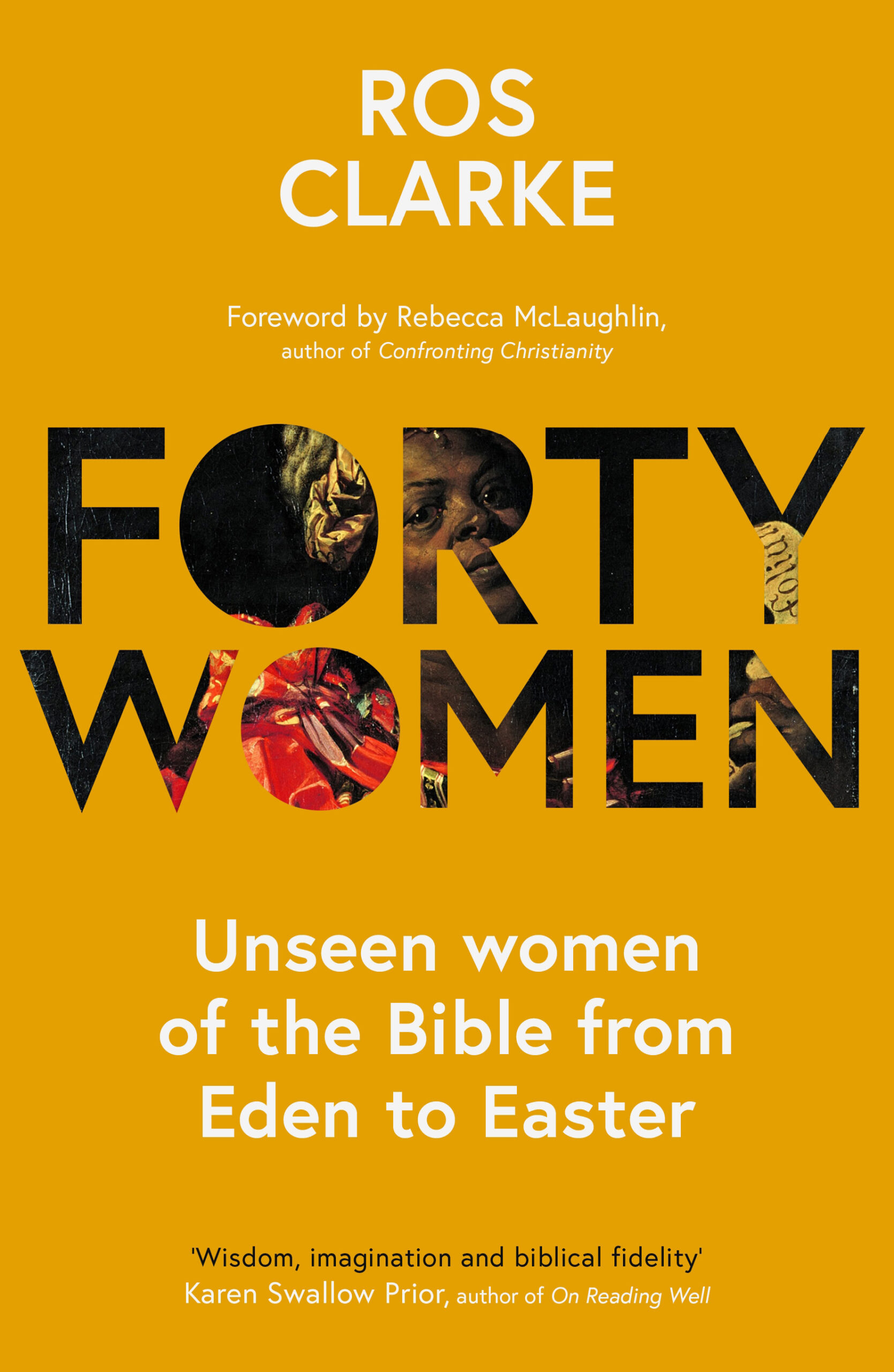
Moore College chaplain Sarah Seabrook reviews “Forty Women” by Ros Clarke. The original format of this book was a series of Lent blog posts in 2019. These have now been collated together. Each chapter looks at different women in the Bible, with a suggested Bible passage to read, two reflection questions, and a written prayer.
Ros Clarke
Forty Women: Unseen women of the Bible from Eden to Easter
London: IVP, 2021
Dr Ros Clarke initially embarked on this exploration of women in the Bible as a Lent blogpost. I followed it at the time (2019) and it now has become this wonderful book Forty Women: Unseen women of the Bible from Eden to Easter. I thoroughly recommend, along with Ros, that you read it throughout Lent (Ash Wednesday to Maundy Thursday, not including the Sundays). That way you will have a chapter to read each day on each of these 40 often underappreciated women with theological, personal and cultural insight gained daily.
Each chapter is only 3-4 pages in length and focuses on one woman (usually, though a couple of times women are grouped together) and most are Old Testament women until you get to Mary who begins the seven women of the New Testament. A single Bible verse is highlighted at the opening and underneath is a suggested related Bible passage to read. The bulk of the chapter is a pithy delivery of biblical analysis on the woman and the reading which has also direct relevance to how we see ourselves today. Next are two well-formed reflection questions followed lastly by a prayer.
It isn’t until you read this for yourself that you will know how it will impact you, but for me, reading about these women was very moving. It is hard to read the vulnerable, sometimes brutal, nearly always flawed, lives of real women and not be moved in some way. Also, I was moved because I was fully engaged in Ros’s narrative re-telling. She reminds the reader of behavioural patterns that have already been seen, of God’s view on such matters and then how each highlighted woman fares with either her own sinful actions and thoughts or those belonging to the people who impact her life. And because I was so engaged, I was also drawn in to realising I could have been any one of these women. Sometimes I have been those women, only in a different era. And God, the master narrator behind all the lives we read about, is there watching, listening and intervening to bring about His promised salvation plan through all the mess and all the pain and all the injustice we witness in these women’s lives.
It’s quite rare to find such fitting and gospel motivated questions in devotions that focus on women of the Bible. Here you won’t find blanched, applicable-to-all-and-every-circumstance questions that rob the reader of any meaning and insight gained thus far. These are in a different category. They capture you and I would strongly suggest spending a good amount of time on them so that they have their intended outcome which in Ros’ words is that “as you spend time with each of these women, you too will seek Christ and cling to him, and that you will find him, and be transformed by him”. The prayers which conclude each chapter are beautiful summaries of this intention too.
This book does not let you escape harsh realities but then the Bible does not hide uncomfortable truths from us even if we might neglect to deal well with them ourselves. There’s evil perpetrated, power used and abused. There’s shame, grief, the loneliness of being in a loveless marriage. There’s envy, manipulation and bad decision-making. It’s complicated and very real. It’s life. And life being what it is, we also see women who show trust, courage, determination and humility. Ros has woven these elements superbly together as she draws our attention to the LORD who notices the invisible and shamed, the LORD who remembers, redeems and restores. The Forward by Rebecca McLaughlin (author of Secular Creed) gives us a hint of what Ros does in weaving gospel truths with the LORD of the Old Testament. “Jesus’ treatment of women was revolutionary. But while Jesus saw women in utterly extraordinary ways, this was not the first time in the Bible that women were seen”.
I imagine this may be an eye-opening read for both men and women. For many it will also be validating and uplifting but it could be difficult reading for some and it is not a children’s devotion. I found I wanted to be alone with what I was reading so that it sank in on a truly personal level but having done that now I also want to talk it over with someone because it was so enriching—which is why I’ll be sending a copy to a close friend! As a church we are going to have this available for Lent readings and I am certain that all who read Forty Women will find it hugely relevant, heartfelt and edifying.



